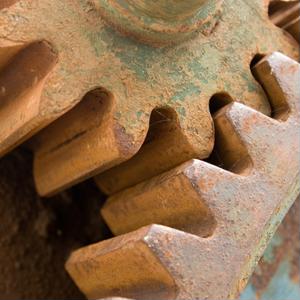The Science Behind a Corrosion Testing Lab
In the auto industry, making your material as corrosion-resistant as possible is one of the top-quality assurance concerns. To do that, corrosion testing services need to perform a laboratory test to ensure you're using precisely the right solution.
But what is corrosion testing, and why bother with it in the first place? Here, we'll explain all about corrosion testing and how testing services work their magic.
Corrosion Testing in the Automotive Industry
Corrosion is a chemical process that naturally occurs when metal (or another material) is exposed to moisture and oxygen. This combination of elements causes corrosion mechanisms to trigger, making the metal deteriorate.
What corrosion looks like depends on the type of metal. Not all metals corrode at the same rate, and some metals, such as aluminum, are resistant to corrosion.
Many use the terms corrosion and rust interchangeably, but they're not quite the same thing. Rust is a type of corrosion that occurs when iron or iron alloys corrode, which forms iron oxide hydrate on top of the surface metal. Corrosion is a broader term that encompasses similar processes across a variety of materials.
Many industries that use surface metals are interested in the science of corrosion, but the automotive industry is especially concerned because corrosion can cause auto parts to fail.
The most effective way to reduce the rate of corrosion is to perform corrosion testing followed by failure analysis. Following this process, the testers can find the best possible solution to help prevent the chemical process. This is a form of quality assurance to ensure all the individual parts of a vehicle work as intended for as long as possible before they succumb to deterioration.
The Art of Testing: Methods and Techniques
There are many ways to test for corrosion, though all share the common feature of being forms of failure analysis. Some of these are:
Salt spray testing (AKA the B117 test)
Salt spraying or B117 test is one of the most common forms of accelerated corrosion testing because of how simple and effective it is. This is the international standard for corrosion testing.
The idea behind it is relatively simple: The tester exposes the metal to a salt solution, which accelerates the chemical process. They use their observations to determine what form of corrosion protection would be most effective. Typically, this comes in the form of a coating that greatly slows the corrosion rate.
A slightly different type of this analysis is called the salt fog test method, which uses a fog instead of a spray.
Crevice corrosion (AKA the ASTM test)
The crevice corrosion test (AKA the ASTM test) uses stress corrosion to analyze a metal. This tests metals for crevice corrosion and pitting. The tester creates a crevice in the material using a special device while submerging it in a ferrite chloride solution for 24 hours. The temperature is controlled during this process. The tester records the temperature at which the crevice forms.
Crevice corrosion testing is especially useful when metal is used for marine applications. If a crevice forms in the metal while it's underwater, total failure may result. Ferrite chloride is a core component of seawater, which is why it's used in this method.
The Secret Weapon is Corrosion Resistance
Stainless steels are the gold standard for corrosion-resistant metal. The rate at which stainless steel corrodes is extremely slow, making it ideal for metals that are commonly exposed to moisture.
The reason stainless steel is so corrosion-resistant is because of its high chromium content, which is typically combined with nickel or molybdenum.
You can also achieve premium corrosion resistance with the right protective coating, customized precisely for your metals.
Navigating the Corrosion Testing Service Landscape
If you want to ensure you have the right solution so your metals are as resistant to corrosion as possible, you need the proper testing service.
Not all testing services are equal, which is why it matters that the most qualified person with the most reliable equipment performs the task. Auto Technology owns the largest environmental testing facility in the nation, with the added honor of being a premium maker of corrosion test equipment.
For top-quality corrosion testing you can't get anywhere else, contact us at Auto Technology today.


